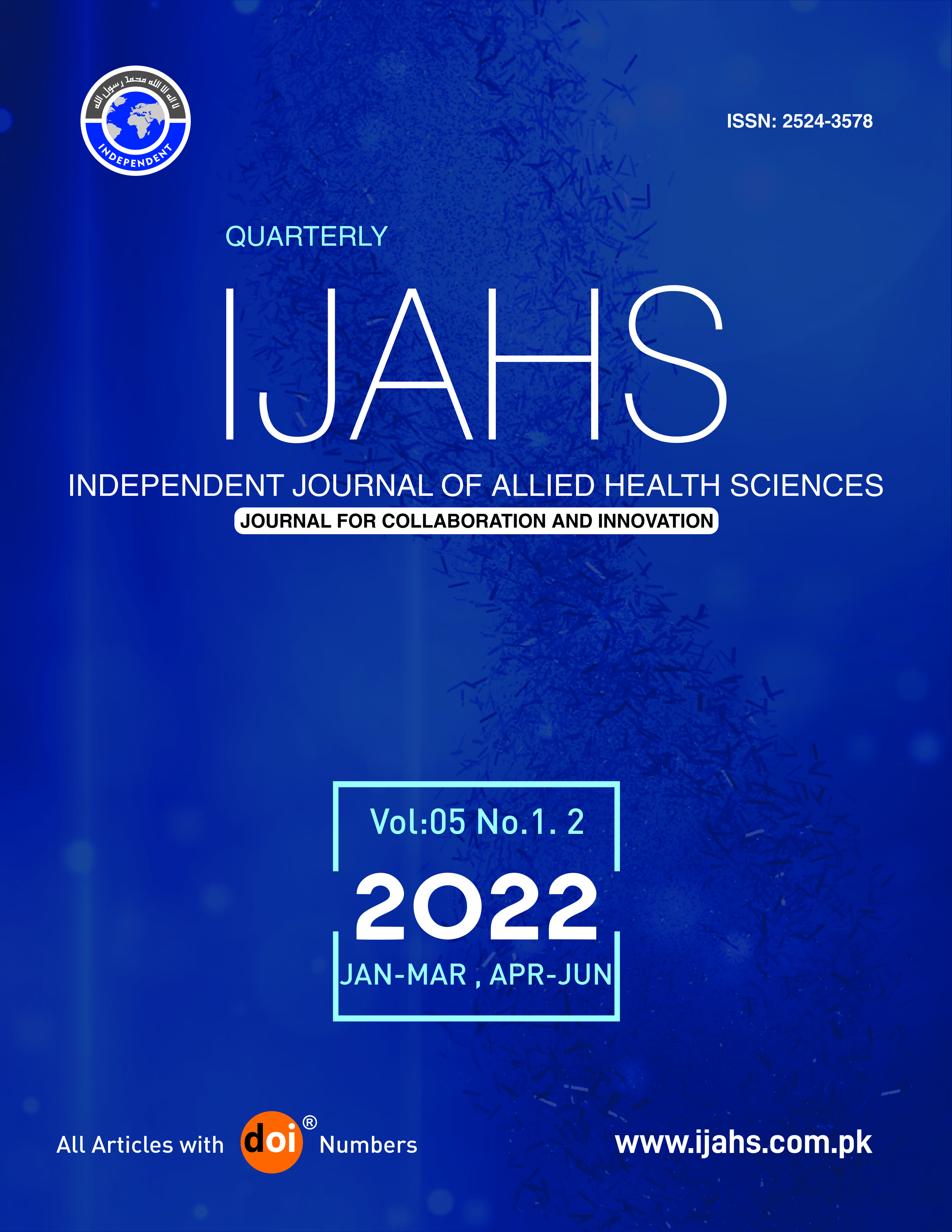IMPAIRED SERUM ELECTROLYTES ASSOCIATED WITH NON-ADHERENCE TO DIABETIC MEDICATION
DOI:
https://doi.org/10.29309/IJAHS/2022.5.01,02.199Abstract
Objective: To find out comparison between impaired electrolytes level and adherence to diabetic medication in diabetic patients. Study design: Cross-Sectional and Observational study. Settings: Fatima Memorial Hospital and Turab Hospital, Lahore. Period: 04-Months. Material and Methods: The data was gathered by applying convenient sampling technique from 74 diabetic patients from Fatima Memorial Hospital, Shadman, Lahore and Turab Hospital,
Township Lahore, Pakistan. They were undergoing diabetic medication (loosely or strictly). All results of their serum glucose (random) levels, HbA1c levels, serum electrolytes included Na+,
K+, and Cl-, clinical history and medical history were documented through a pre-designed proforma. Patients included in this research were, aged between 24 to 90 years, known case of diabetes mellitus whereas non-diabetic persons were excluded from this study. Results: Out of 74, 23 i.e., 31.1% patients were strictly adherent with medicine and have controlled diabetes and electrolyte levels, whereas 14 i.e., 18.9% patients were loosely adherent to their medications but 37 i.e., 50% were those who were non-adherent to their diabetic medicine and have uncontrolled diabetes and electrolytes levels. Conclusion: Electrolytes imbalance were a major problem in diabetic patients who didn't take diabetic medicines properly have life-threatening complications. It was statistically observed that low level of sodium and chloride significantly
occurred whereas the level of potassium were significantly higher in them

Downloads
Published
Issue
Section
License
Copyright (c) 2024 Independent Journal of Allied Health Sciences

This work is licensed under a Creative Commons Attribution-NonCommercial 4.0 International License.

